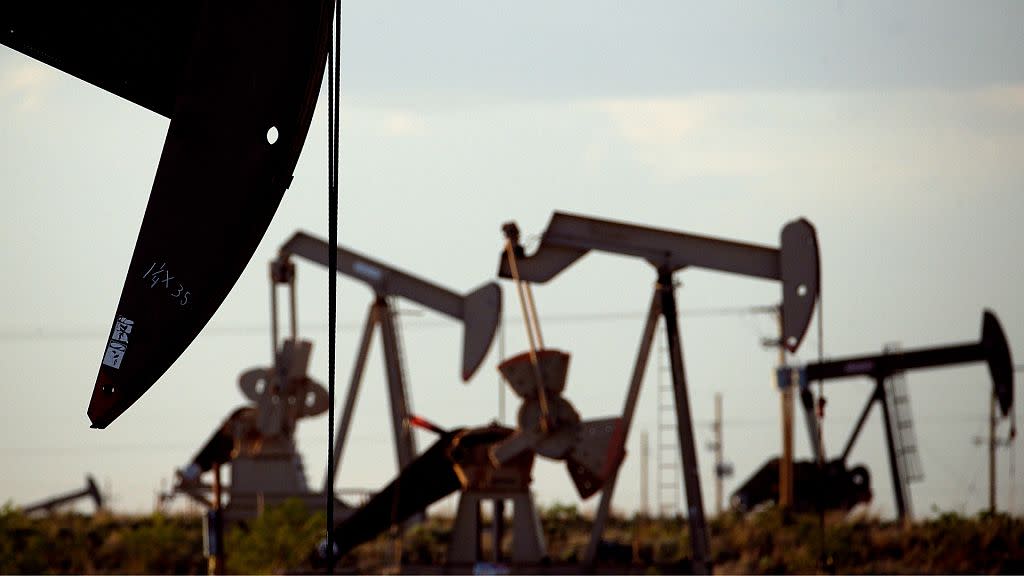Banks are propping up the fossil fuel industry to the tune of €6.5 trillion, new report finds

Big banks have financed fossil fuels with nearly $7 trillion (€6.5 trillion) since the Paris Agreement, a new report has found.
The 15th annual Banking on Climate Chaos (BOCC) report looked at how the top 60 private banks in the world are underwriting and lending to over 4,200 fossil fuel firms, and financing companies causing the degradation of the Amazon and Arctic.
Their research found that, since the Paris Agreement to limit global warming was signed in 2016, these banks have financed fossil fuels with $6.9 trillion (€6.4 trillion). The report says $3.3 trillion (€3 trillion) - almost half of this amount - went towards fossil fuel expansion alone.
Written by researchers from BankTrack, Centre for Energy, Ecology and Development, Indigenous Environmental Network, Oil Change International, Sierra Club, and Urgewald, it has been endorsed by almost 600 organisations across 69 countries.
Who were the biggest fossil fuel financers in 2023?
Despite commitments to lower emissions through the Net Zero Banking Alliance in 2021, finance for fossil fuel companies from the world’s top banks totalled $705 billion (€653 billion) last year. $347 billion (€321 billion) went towards fossil fuel expansion.
US banks top the list of the biggest financiers in 2023 contributing 30 per cent of the total amount. JP Morgan Chase topped the list overall at nearly $41 billion (€38 billion) handed out to fossil fuel firms last year and Bank of America came in third. Japanese bank Mizuho came in second with $37.1 billion (€34 billion).
“Banks that profit from climate chaos invent new greenwash every year, but we have the receipts that show how much money they put into fossil fuels,” says report co-author April Merleaux, research and policy manager at Rainforest Action Network.
In previous years, the report only credited banks in leading roles but this edition credits all banks making financial contributions to a deal. Its authors say the financial institutions were contacted to confirm and given an opportunity to review the deals attributed to them.
“Our new methodology uncovers previously unreported details on banks’ support for fossil fuels and gives campaigners new tools to hold them accountable,” Merleaux adds.
Critics say this methodology does not provide a clear, detailed picture of what is being financed or by whom. They claim this may mean some decarbonisation projects and funds for transition technology are included in the total.
How much did European banks give to fossil fuel firms?
In total, European banks contributed just over a quarter of the total fossil fuel financing in 2023.
Barclays was Europe’s biggest fossil fuel financier in 2023, providing $24.2 billion (€22.4 billion). It was also eighth in the ranking of top banks financing fossil fuels since the Paris Agreement.
Santander was Europe’s second biggest at $14.5 billion (€13.4 billion) in 2023 and Deutsche Bank was third with $13.4 billion (€12.4 billion).
“European banks like to claim to be showing leadership when it comes to action on climate change, but they are continuing to channel money into fossil fuel expansion, despite the clear warnings from climate science,” says co-author Lucie Pinson, director and founder of Reclaim Finance.

A spokesperson for Deutsche Bank says it is “transparent about its decarbonisation strategy in CO2-intensive sectors” and the latest disclosure shows emissions have been “reduced significantly”.
The bank says it has significantly reduced its engagement in carbon-intensive schemes since 2016 and emphasises that its “objective is to support the orderly and targeted phasing out of fossil fuels”.
Santander says it is “fully committed to supporting the transition to net zero” and has set emission reduction targets for 2030 across sectors including power generation, thermal coal and energy (oil and gas).
“All financing decisions are guided by a strict policy framework approved by our board of directors,” a spokesperson says.
A spokesperson for Barclays also says it is financing “an energy sector in transition” adding that its “financed emissions for the Energy and Power sectors have reduced by 44 per cent and 26 per cent respectively, between 2020 and 2023”.
The bank also says it does not recognise the classification or attribution of some transactions included in the report.
European banks are ‘particularly blind’ to LNG risks
The BOCC report notes that an increase in financing by a handful of European banks is one of the “surprising trends” from last year.
Research found that the decline among European banks was quite small, driven by an increase in fossil finance - mostly for methane gas or LNG - from banks in Germany, the Netherlands, Spain and Denmark.
Pinson says that European banks appear to be “particularly blind” to the risks associated with the expansion of LNG, financing new facilities in the US, Africa and Papua New Guinea that will lock us into fossil gas for decades to come.
Peter Bosip, executive director of the Centre for Environmental Law and Community Rights in Papua New Guinea, adds that French banks have already ruled out LNG in the country and “others must too”.
“For these banks, recently adopted EU transition planning requirements must mean establishing a strategy to phase out support for fossil fuels, with an immediate halt to financial services provided to their development and the companies responsible for it,” Pinson explains.
More promisingly, the report also found that European banks were among those picking up the pace on commitments to restrict the financing of new oil and gas fields in 2023.
In total 38 of the world’s biggest banks have some restrictions on financing oil and gas. Just two - La Banque Postale and Danske Bank - have commitments that “significantly restrict” this financing, the report says.
Less progress was made on commitments to restrict financing for coal, however, and the quality of oil and gas policies doesn’t appear to have improved. The report warns that banks appear to have reached a plateau with “new normal” policies which as a whole “remain too weak to tackle oil and gas expansion”.

